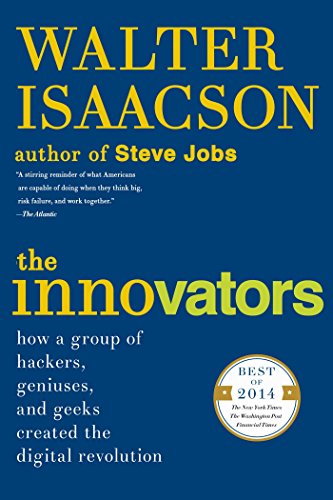
The Master Switch: The Rise and Fall of Information Empires (Vintage)

The Idea Factory: Bell Labs and the Great Age of American Innovation
Jon Gertner • 1 highlight
amazon.com

Vail didn’t do any of this out of altruism. He saw that a possible route to monopoly—or at least a near monopoly, which was what AT&T had always been striving for—could be achieved not through a show of muscle but through an acquiescence to political supervision. Yet his primary argument was an idea. He argued that telephone service had become
... See moreJon Gertner • The Idea Factory: Bell Labs and the Great Age of American Innovation
The Innovators: How a Group of Hackers, Geniuses, and Geeks Created the Digital Revolution
amazon.com
Kevin Whitaker • The Power of Anomaly
AT&T’s savior was Theodore Vail, who became its president in 1907, just a few years after Millikan’s friend Frank Jewett joined the company.11 In appearance, Vail seemed almost a caricature of a Gilded Age executive: Rotund and jowly, with a white walrus mustache, round spectacles, and a sweep of silver hair, he carried forth a magisterial conf
... See moreJon Gertner • The Idea Factory: Bell Labs and the Great Age of American Innovation
One reason for these misguesses was just the usual failure of imagination in the face of a radically new technology. The telegraph lay in plain view, but its lessons did not extrapolate well to this new device. The telegraph demanded literacy; the telephone embraced orality. A message sent by telegraph had first to be written, encoded, and tapped o
... See moreJames Gleick • The Information: A History, a Theory, a Flood
At the time of the breakup, in fact, it was widely assumed in the business press that IBM and AT&T would now struggle for supremacy. What undermined such an assumption was the historical record: Everything Bell Labs had ever made for AT&T had been channeled into a monopoly business. “One immediate problem for which no amount of corporate bu
... See more